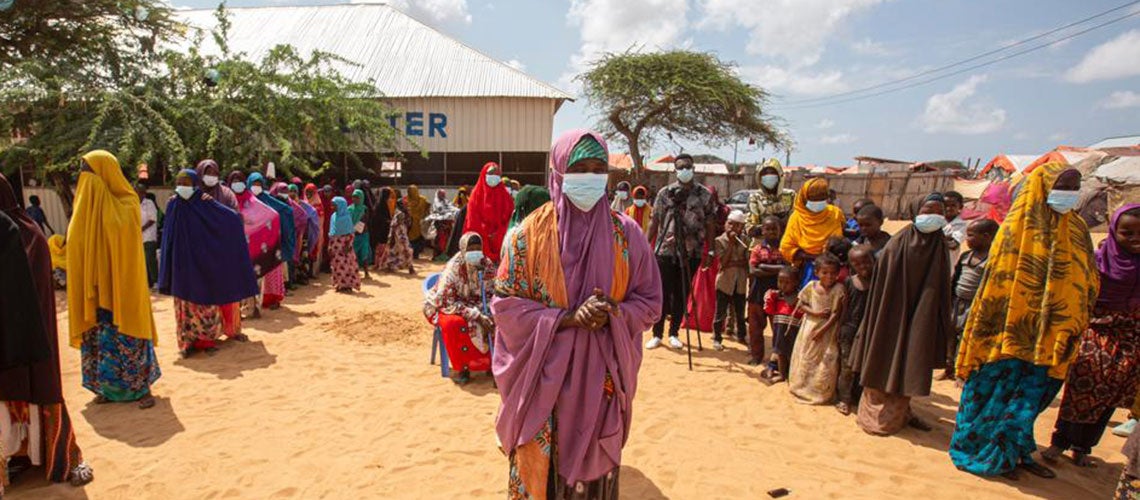 Tapping regional integration to bolster resilience in the Horn of Africa
Tapping regional integration to bolster resilience in the Horn of Africa
In 2020, the economies of Djibouti, Ethiopia, Kenya and Somalia together grew by 0.88%, despite the significant downside risks precipitated by the COVID-19 (coronavirus) pandemic and the accompanying economic shakeout. Stark divergence in growth profiles, underlying fragilities and significant risks create a complex context going forward. It is against this backdrop of risk tempered with cautious optimism that the Finance Ministers of the Horn of Africa Initiative met virtually on March 31, 2021 to further the gains realized in strengthening regional integration in order to bolster resilience in the Horn of Africa.
Crowding in capital to support connectivity and unlock opportunity is a priority under the Horn of Africa Initiative. Of the agreed package of $15 billion, an initial tranche of $3.3 billion has been mobilized from the Africa Development Bank (AfDB), the European Union (EU) and the World Bank to support regional economic corridors, energy trade, digital economy, trade facilitation, disease surveillance and response to the locusts’ crisis. For example, the AfDB and the World Bank have teamed up to support the Isiolo/Mandera corridor, with the Bank funding $750 million through the Horn of Africa Gateway Development project. The Bank has approved a $500 million Emergency Locust Response Project with a Multiphase Programmatic Approach to help support countries in the Horn affected by locust invasions. The EU has also greenlighted $88 million for locust response and another $45 million to promote harmonized trading frameworks between Djibouti and Ethiopia. In 2021, AfDB is prioritizing three projects worth an estimated $500 million for implementation. The World Bank alongside the AfDB have mobilized about $600 million to support second Ethiopia-Djibouti Interconnector and the Ethiopia-Somalia Interconnectors. The Inter-Governmental Authority on Development supports the Initiative with its deep experience in the region and technical insights.
These interventions strengthen the relationships and connectivity across the Horn of Africa to help create jobs, mitigate emerging risks and strengthen resilience. Connected roads, access to energy, and digital systems are a catalyst for commerce; they help businesses trim their overheads and strengthen linkages to regional and global value chains. Investments in agriculture and pastoral value chains spur the creation of livelihoods and help to bring economic activity and services to neglected borderland areas. Last, but not least, such interventions create a multiplier for growth and development within broadly underserved markets and can help to address significant inequalities across the sub-region.
Horn of Africa Initiative member countries are working together to deepen regional integration with help from the newly-established 30 million Euro Multi Donor Trust Fund (MDTF), contributed to by the EU and to be administered by the World Bank. Activities under this trust fund will accelerate the pace at which proposals can be translated into viable projects on the ground. The MDTF creates an avenue through which donors can also easily support projects under the Horn of Africa Initiative. The activation of the MDTF is critical given the plan to reach out to more development partners to finance the remaining part of the $15 billion priority financing package.
The Horn of Africa Initiative is also exploring innovative ways to help member states address the health and economic impact of the COVID-19 pandemic, deal with drought and other climate related crises, and to support displaced populations. Countries have come together in multiple workshops to agree on and prioritize their collective efforts, providing a platform to keep the cooperation advancing even under the weight of the crisis. The initiative has also prioritized the ‘soft aspects’ of the partnership such as policy harmonization across member countries to ensure real spillover benefits, which are vital to enhance regional results and resilience.
Overall, the countries of the Horn of Africa Initiative are moving forward toward a more interconnected, a more integrated and a more resilient Horn. Sudan has participated as an observer and will likely join as formal member in autumn, further broadening the initiative’s potential and impact.


Join the Conversation